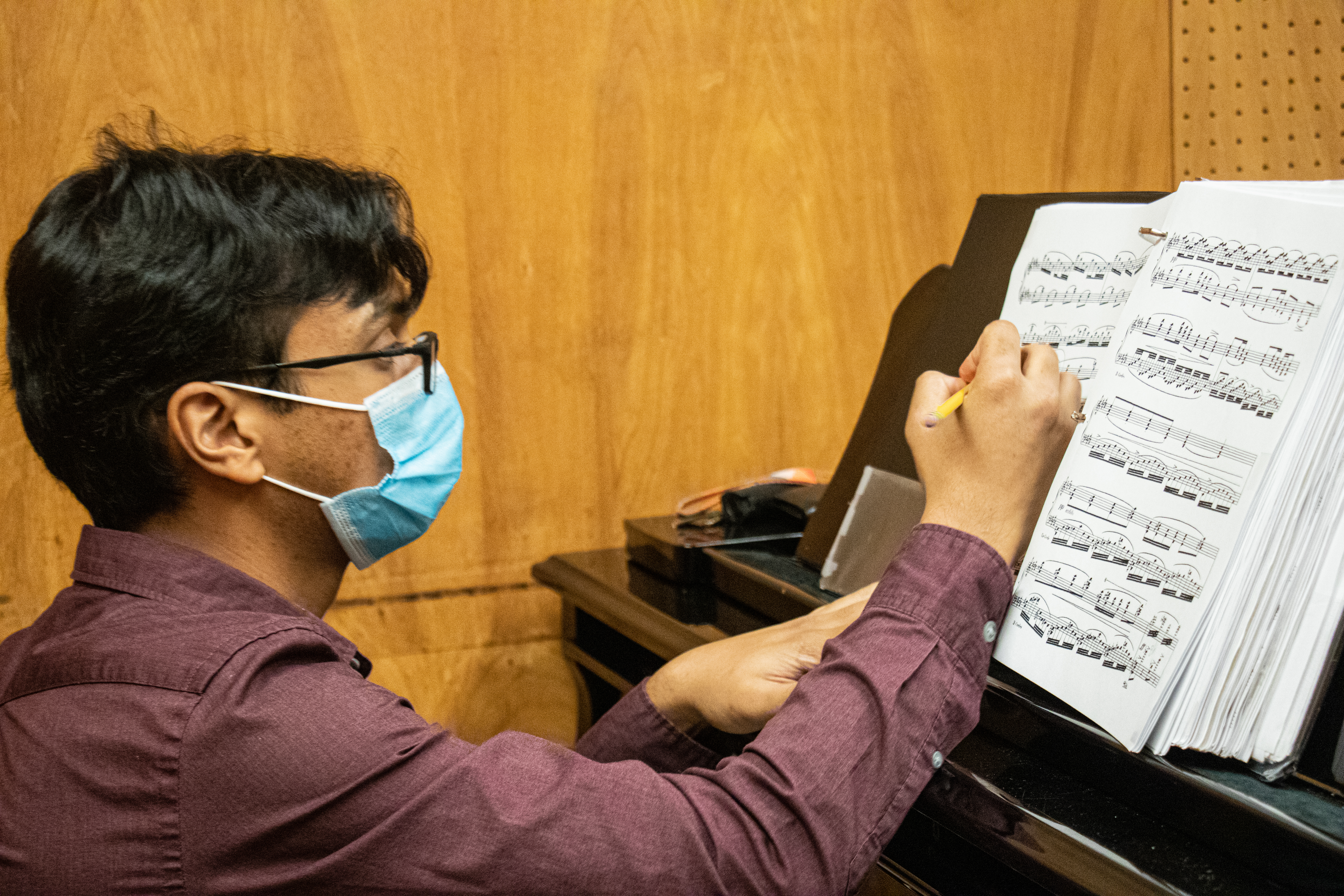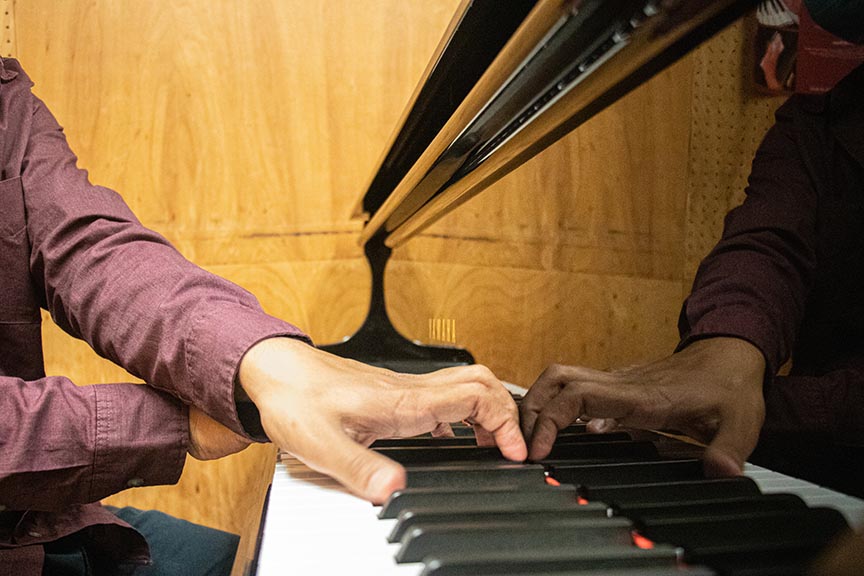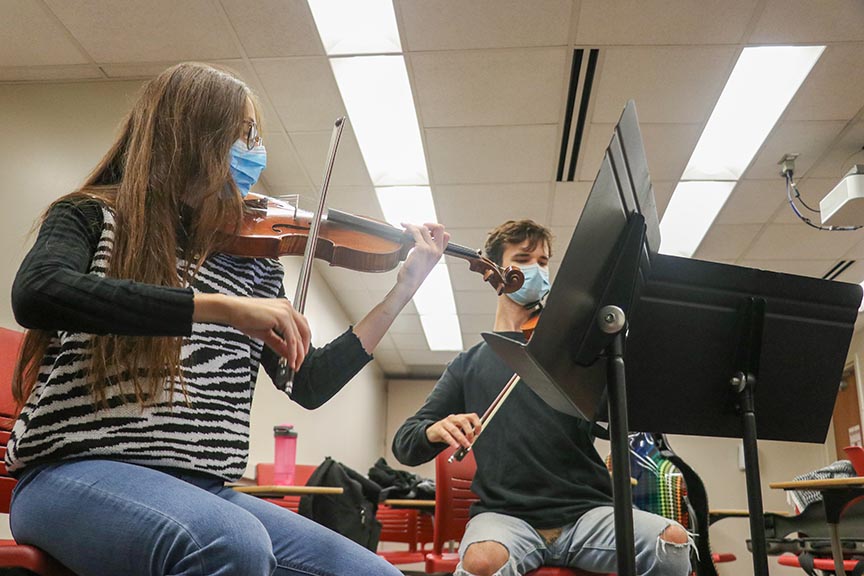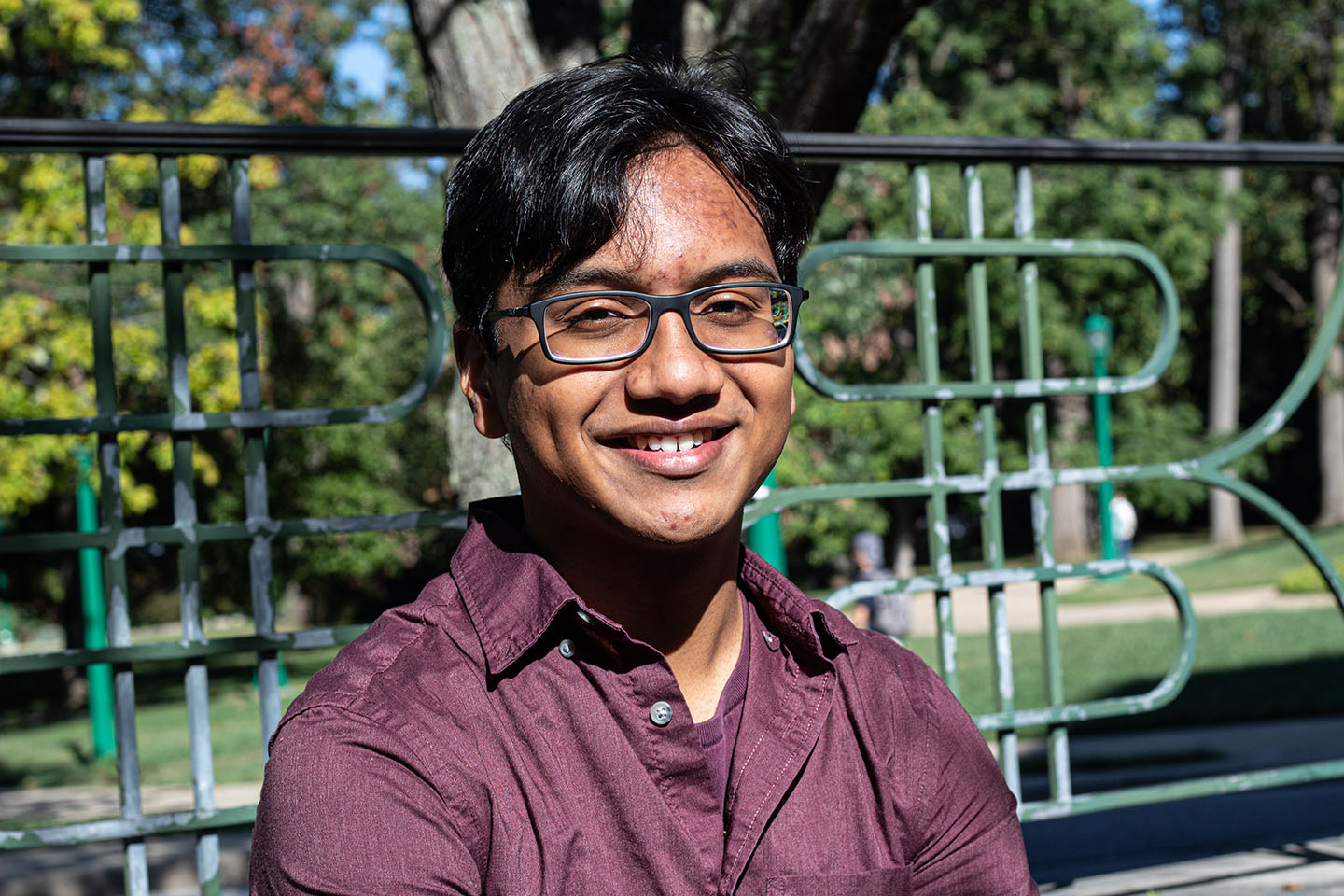After the Audition
For many, earning a spot at the Jacobs School of Music is a dream come true. But what happens when the constant competition becomes too much?
Abhik Mazumder only had 10 minutes before his first class of the day, but he spent them in a shoebox-sized practice room at the Jacobs School of Music. Like most of the musicians also hammering away at their craft in the Music Addition practice building, he is accustomed to one of several rules of Jacobs survival.
Practice whenever you can.
The third-year piano performance major sat down at his instrument, and soon the buoyant, joyful notes of Schubert’s so-called Little “Piano Sonata in A Major” tumble out of the soundboard and fill the small space around him.
But there was a dissonance — not within the music, but between it and Abhik’s surroundings. The room is cramped. There’s no echo. Sometimes, he thinks the walls feel daunting.

As his hands weaved rapidly up and down the keyboard, it was hard to imagine that pushing patterns made up of these 88 notes at the exact right time with the exact right dynamic and tonality has ever been anything but effortless for him.
But there were times a year ago when he was under so much pressure that when he’d try to practice, his fingers were too numb to play. He could barely sit up straight. His mental health was at an all time low. He felt drained, defeated, directionless.
Here at the number four-ranked music conservatory in the United States, playing the exact right note can decide whether you earn a spot in the best ensemble. The exact right timing can determine whether you think of yourself as a talented musician or an utter failure. The correct dynamic or tonality can be the only thing stopping you from becoming the subject of your peers’ gossip or professors’ biting critique.
And even if you make it out of college unscathed, who’s to say how you’ll fare in a job market that will never guarantee a well-paying position?
There’s no easy way to shoulder the cyclone of competition, impossible workloads and sky-high expectations innate to a music conservatory as prestigious as Jacobs. Many students like Abhik find the fire of passion they once had for their instrument extinguished.
In other words, they burn out.
***
It was a Thursday night in August. Abhik and four other Jacobs students sat in a crescent shape on the Auer Hall stage across from an audience of about 100 people, half sitting in person and half watching virtually. Each musician held a microphone, but they weren’t going to be performing with their instruments tonight.
Instead, they were there to talk.
It was Jacobs’s very first “Stop the Stigma” event, the brainchild of the school’s Health and Wellness Committee. One of the committee’s leaders and the night’s host John Raymond introduced the panel, moderated by professor of music education Frank Diaz.
John, a 35-year-old jazz professor, and a group of other young music teachers formed Jacobs’s Health and Wellness Committee last spring in response to mental health problems they were noticing in their students. They’ve spent the last year working to identify and respond to student issues through projects like creating a webpage that consolidates student resources, promoting mindfulness classes taught by Professor Diaz and planning town halls like this one for students to voice their concerns.
Each musician took a turn sharing their personal struggles with imposter syndrome, perfectionism, self esteem, mental health and burnout.
One panelist, Rebecca Luppe, said she once got to a point where the constant competition at Jacobs made her lose her sense of legitimacy and self-worth. The fact no one ever talked publicly about those feelings was crushing, she said.




